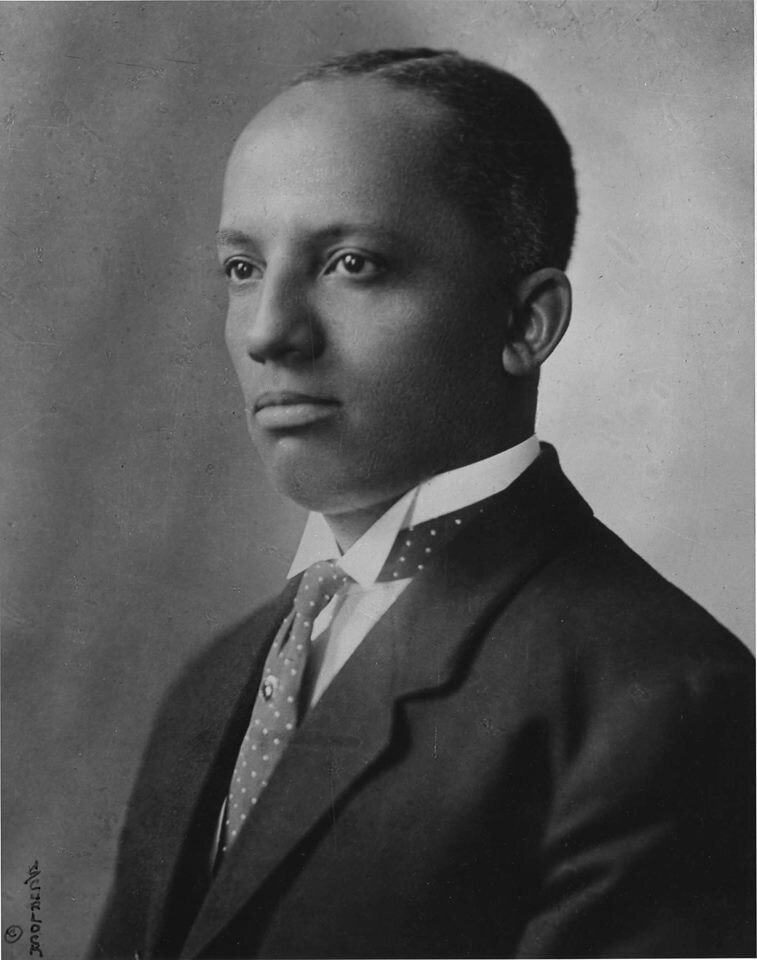Learning the importance of implementing African-American studies and amplifying Black excellence
Tess Petrillo, Editor-in-Chief
Originally published March 17, 2021
Photo of Carter G. Woodson from the ASALH website
In the early twentieth-century, historian and journalist Carter G. Woodson began to popularize and engage awareness of African-American studies, embarking on a revolutionary path in aims to promote the education of the African-American diaspora.
Fifty years after the Emancipation Proclamation—which was technically when Abraham Lincoln abolished slavery in 1863, but all enslaved people were not liberated until June 19th 1865—Woodson was inspired to found the Association for the Study of African American Life and History (ASALH) (originally the Association for the Study of Negro Life and History) after attending an anniversary celebration in 1915. His goal was to implement an in-depth course of Black history into the United States education system.
In 1916 the ASALH published the “The Journal of Negro History”, edited by Woodson, and then in 1924 gained support from Woodson’s fraternity at Howard University, Omega Psi Phi (a historically African-American fraternity), with the launching of Negro History and Literature Week, later renamed Negro Achievement week. This was later followed by the introduction of Negro History Week in Feb. 1926 as African-American studies received more backing.
Negro History Week settled in February to honor the legacies of President Abraham Lincoln, born Feb. 12, and abolitionist Frederick Douglass, born Feb. 14, as the accomplishments and contributions both figures made towards civil rights was already greatly celebrated by Black communities. As Woodson sought to amplify the achievements of these liberators and achievements of all Black people throughout history, the month of February was fitting.
As the awareness around the American civil rights movement intensified in the 1960s, Negro History Week grew into Black History Month, being celebrated in numerous communities. In 1976, the ASALH facilitated the national implementation for February being Black History Month, with President Gerald Ford urging participation.
While following presidents continued encouragement in the celebration of Black History Month, Congress officially passed the law stating that February was National Black (Afro-American) History Month in 1986.
Looking at recent increase in support of the Black Lives Matter movement in the fight against police brutality, many similarities can be drawn from the way people are choosing to be socially active now, in comparison to the ways in which people were active in the decades previous to the Civil Rights Movement.
According to the ASALH, in the 1930s, after more African-Americans had moved into larger cities and consuming Black history became popularized among the Black middle class as well as progressive white people, Woodson saw a great flaw in this public interest.
“He warned teachers not to invite speakers who had less knowledge than the students themselves,” as stated on the ASALH website. “Increasingly publishing houses that had previously ignored black topics and authors rushed to put books on the market and in the schools. Instant experts appeared everywhere, and non-scholarly works appeared from ‘mushroom presses.’
“In America, nothing popular escapes either commercialization or eventual trivialization, and so Woodson, the constant reformer, had his hands full in promoting celebrations worthy of the people who had made the history.”
Sound familiar?
Before his passing in 1950, Woodson spoke of a push to expand Negro History Week to Negro History Year, as he felt that it was not enough time to explore the overwhelming importance of Black history to America, and to the world.
With the recent increase in support for the Black Lives Matter movement, exploring and appreciating Black history seems to have become more consistent throughout the entire year rather than condensed into an entire month. But like Woodson noted earlier in history, America often trivializes and commercializes movements; could this be the superficiality repeating itself, or a step forward in implementing Black history in American education?

























